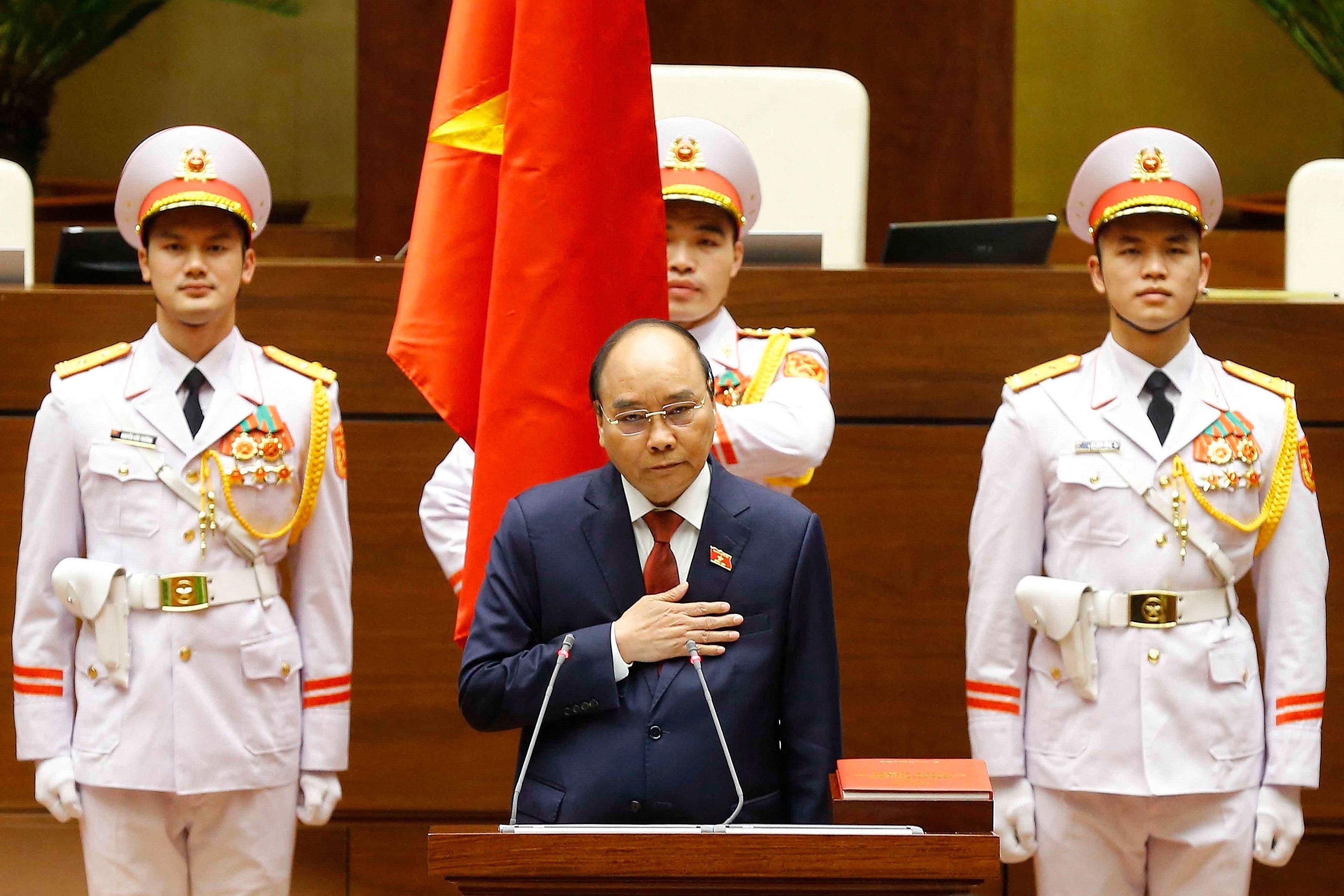Vietnam shifts leaders but keeps key economic policies in place
Sign up now: Get insights on Asia's fast-moving developments

Vietnam's newly elected President Nguyen Xuan Phuc taking oath during the National Assembly's spring session in Hanoi, on April 5, 2021.
PHOTO: AFP
Follow topic:
HANOI (BLOOMBERG) - Vietnam's Communist Party on Monday (April 5) nominated a little-known official to be the country's next prime minister, tasked with reviving the economy in the wake of the pandemic while navigating growing US-China tensions.
Mr Pham Minh Chinh, who rose through the ranks of Vietnam's national security apparatus and has a PhD in law, is the only candidate for prime minister put forward by the Politburo.
The National Assembly is expected to approve the 63-year-old, who has also served on a powerful anti-corruption steering committee, later in the day.
Mr Chinh will be the main point person for Vietnam's interactions with the world even though other members of Vietnam's Communist Party are better known and seen as more powerful.
General Secretary Nguyen Phu Trong, 76, was re-elected to a rare third term on Jan 31 by the National Party Congress during the once-in-five-year leadership transition wrapping up this week.
Prime Minister Nguyen Xuan Phuc, 66, was elected president on Monday, allowing him to stay among the country's top leaders.
Mr Vuong Dinh Hue, 64, a former minister of finance and ex-deputy prime minister, has been approved as chairman of the National Assembly - one of the four top positions in the government.
Vietnam has a collective "four pillar" leadership structure made up of general secretary, prime minister, president and chair of the National Assembly, as the Parliament is known. The leaders govern in consultation with the 18-member politburo with the prime minister holding significant influence over project funding and detailed policy implementation.
Mr Chinh was first secretary at Vietnam's embassy in Romania in 1989 and became deputy public security minister in 2010. He is also a member of the country's Central Steering Committee for Anti-Corruption led by Mr Trong.
The new prime minister was party chief of the north-eastern coastal province of Quang Ninh, home to the World Heritage Site Ha Long Bay.
Analysts do not expect Mr Chinh and the other leaders to veer from Vietnam's long-held policies, including further opening its markets to the global economy and balancing relations with its powerful neighbour China and the US.
"You don't have people vying for prime minister who have alternative economic policies," said Emeritus Professor Carl Thayer at the University of New South Wales in Australia. "His job is to implement policies that have already been well thought out."
The new prime minister will grapple with economic reforms required by new trade deals and the need to address bottlenecks in the manufacturing sector with improved infrastructure, including ensuring reliable energy, said Mr Peter Mumford, South-east & South Asia practice head at risk consultancy Eurasia Group.
The government will also be pressed to deal with pollution that increasingly concerns the nation's growing middle class.
Key priorities will include working closely with the Biden administration to resolve tensions around trade and Vietnam's currency, Mumford said.
The party's five-year plan continues to endorse "socialism with a market orientation." Hanoi has signed more than a dozen free trade agreements in recent years.
The latest blueprint calls for average economic growth of 6.5 per cent-7 per cent during 2021-2025, versus 5.9 per cent the previous five years and increasing per capita GDP to US$4,700-US$5,000 (S$6,324 - S$6,727) by 2025, from US$2,750 at the end of 2020.
The leadership selection process occurs in secret and involves political compromises for party unity.

